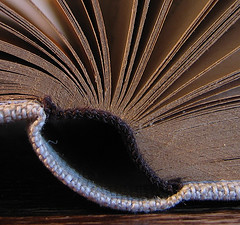This is one story which passed me by and I’ve only just discovered it – ‘Into the wild’ Jon Krakauer’s retelling of Chris McCandless’
tale.
I enjoyed Jon’s storytelling style in ‘Into thin air’, and have to admit it was the same with ‘Into the wild’ (do you see a theme here?). I was reading the library’s ebook version and I found it hard to put down, I’d get a few minutes and start reading, was at the hairdressers and peering at it via the small phone screen – and this was despite already knowing the ending! It wasn’t enough though, after reading the book I had to check out the film. Sean Penn directed the movie version which is based on Jon's book and told in a series of flashbacks.
It is based on the true story of Christopher McCandless played by Emile Hirsch.The film is beautifully shot, and I liked the concept of utilising the words from Chris' postcards on the screen.
The Plot: When he graduated in May 1990, Christopher had rejected the trappings of his conventional life – cutting up his credit cards and ID, donating his college fund savings ($24,000) to Oxfam, and instead he sets out to experience life in the wilderness – without telling anyone, in fact masquerading his activities.
Chris’ old yellow Datsun is caught in a flash flood, so he just abandons it. He burns his last money, begins hitchhiking, and assumes the
name: Alexander Supertramp. As Alex he encounters different people who take him in (and listen to his philosophy on life). But he keeps moving on, captivated with the idea of going north to Alaska.
In April 1992, Chris arrives in a remote area of the Denali National Park in Alaska, and sets up camp in an abandoned bus used by hunters. At first, he is content with the isolation, the beauty of nature, and the thrill of living off the land.
In April 1992, Chris arrives in a remote area of the Denali National Park in Alaska, and sets up camp in an abandoned bus used by hunters. At first, he is content with the isolation, the beauty of nature, and the thrill of living off the land.
Months later, he encounters difficulties, life becomes harder and he becomes less discerning. As his supply of rice (his staple) begins to run out, he realises that the nature he wants to experience is also harsh and uncaring and unrelenting, and he decides to return to civilisation, his family and
friends. But, the stream he had crossed before the Spring melt is now a torrent and uncrossable (at least from where he is standing).
Seemly doomed, he returns to the bus, now as a prisoner no longer in control of his fate and reliant on help from the outside. Forced to gather and eat roots& berries, he apparently confuses two similar plants and suffers from an inability to digest food and wastes away. He writes a farewell to the world and crawls into his sleeping bag to die. Two weeks later, his body is found by groups of moose hunters.
When the events happened it caused a flood of comments which polarised people who considered him a free spirit, and those who considered him
an unprepared innocent abroad. Similarities have since been drawn with Timothy Treadwell who was killed by a bear in 2003.
But concentrating on Jon’s telling of the story, some is supposition on what caused Chris to eat the seeds, what truly motivated him etc. There is also a chapter on Jon’s experiences climbing the Devil’s Thumb illustrating the parallels between his early life and Chris’. Jon investigated the story, he spoke with Chris' family and the people he had met on his travels.
In the resulting book, Jon seeks to examine and explain the obsession which leads some people to explore the outer limits of self, leave civilisation behind and seek enlightenment through solitude and contact with nature.
I have to admit amongst a whole host of thoughts I was left wondering, would it have ended differently if Chris had not found the bus refuge, would his experience have been curtailed if he wasn't cocooned by the added physical security provided by the bus' living conditions, and headed home sooner?? We'll never know.











No comments:
Post a Comment